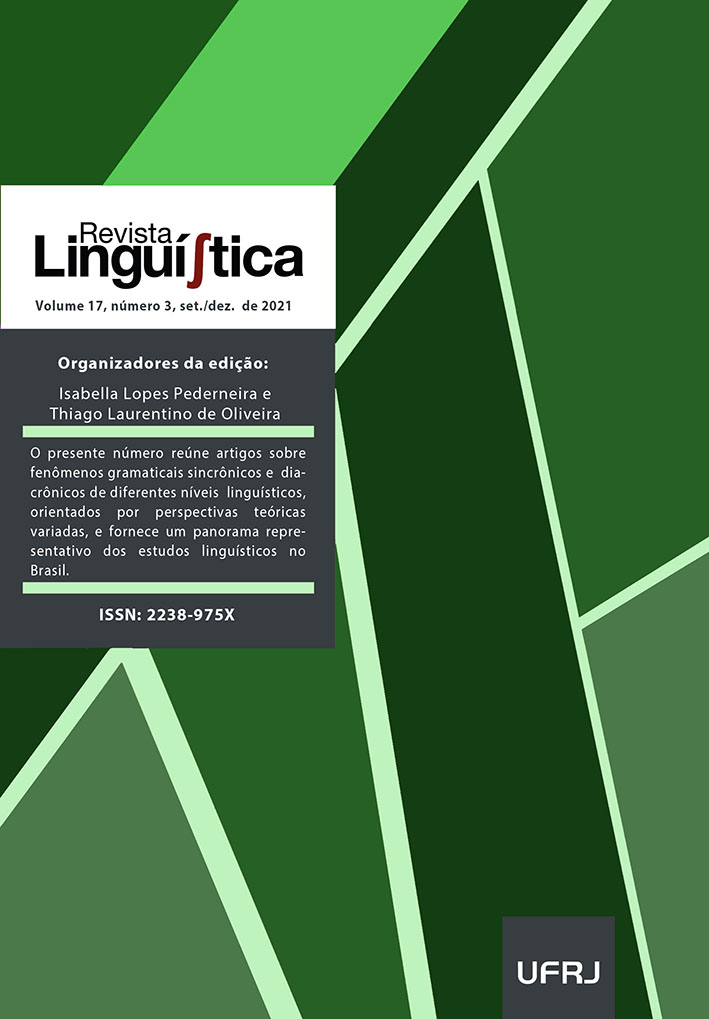On the emergence of compound forms to the expression of the ‘antepretérito’: morphosyntactic and semantic constructs
DOI:
https://doi.org/10.31513/linguistica.2021.v17n3a49653Keywords:
haver/ter, participle, antepretérito. profane lyric. galician-portugueseAbstract
In search of evidence of the emergence of the compound form of the antepretérito (past before), this article presents morphosyntactic-semantic motivations that led to the grammaticization process of the verbs haver/ter as auxiliaries plus verbal participles. Through the analysis of data from 1,680 medieval Galician-Portuguese songs, the emergence of the grammaticization process of compound tenses (haver/ter more participle) is portrayed through four analysis parameters, two of them referring to the argument selection of subject and object, one about the type of verbal combination and yet another to verify morphological marks of the participial form, so that it would be possible to detect grammaticization stages linked to principles such as layering, divergence, persistence, specialization and decategorization. This way, we noticed that the occurrences showed, predominantly, a lack of coincidence between subjects of haver/ter and participle; notion of metaphorical possession of the object; combination of haver/ter much more with verbs that do not contradict the notion of possession and neutralization (masculine/singular) of the participial structure. In addition to these contextual constructs that enabled the grammaticalization of structures composed of haver/ter in the imperfect tense plus participle, other verb tenses combined with the participle, depending on the context, have also manifested the temporal notion of past before another past in the songs, namely: presente do indicativo (present tense), pretérito perfeito do indicativo (simple past tense) and pretérito imperfeito do subjuntivo (subjunctive imperfect tense) followed by participle.Downloads
Published
Issue
Section
License
Authors who publish in the Revista Linguí∫tica agree with the following terms:
The authors maintain their rights, ceding to the journal the right to first publication of the article, simultaneously submitted to a Creative Commons license permitting the sharing with third-parties of published content as long as it mentions the author and its first publication in the Revista Linguí∫tica.
Authors may enter into additional agreements for the non-exclusive distribution of their published work (for example, posting in online institutional or non-profit repositories, or book chapters) so long as they acknowledge its initial publication in the Revista Linguí∫tica.

The journal Revista Linguí∫tica is published by the Post-Graduate program in Linguistics of UFRJ and employs a Creative Commons - Attribution-NonCommercial 4.0 International (CC-BY-NC).









